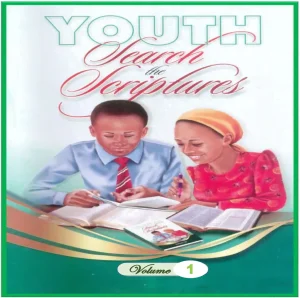
ADULT STS LESSON 186: RUTH’S PIETY AND INDUSTRY
MEMORY VERSE:
“The LORD recompense thy work, and a full reward be given thee of the LORD God of Israel, under whose wings thou art come to trust” (Ruth 2:12).
TEXT:
Ruth 2:1-23
Introduction
In the first chapter of the book of Ruth, the sad events of the demise of Elimelech, the husband of Naomi and their two sons, Mahlon and Chilion were recorded. Ruth, the wife of Mahlon had demonstrated uncommon commitment and loyalty to her mother-in-law by doggedly following her from Moab back to Bethlehem-judah. She had also openly professed her faith in the God of Israel. Eventually, the duo “came to Bethlehem in the beginning of barley harvest” (Ruth 1:22).
Upon their return from Moab, Ruth continually showed remarkable virtues that distinguished her in addition to her faith in the God of Israel. She would not hide under the excuse of being a stranger in a strange land and become a burden to her mother-in-law; she was determined to find sustenance for herself. Like the virtuous woman of King Lemuel’s description, “She seeketh wool, and flax, and worketh willingly with her hands. She is like the merchants’ ships; she bringeth her food from afar” (Proverbs 31:13, 14). She demonstrated the virtues of industry and piety. These earned her approbation and favour and paved the way for her integration, not only into the commonwealth of Israel, but a place in the lineage of our Lord Jesus Christ. Ruth’s decision to go and glean in the fields, her industry and piety, the divine favour and connection that attended her efforts and encounter with a near kinsman of Elimelech and future husband, form the thrust of this study.
RUTH’S REACTION TO HER PLIGHT
(Ruth 2:1-3,7; Proverbs 13:4; 10:4; 12:24; 22:29)
Naomi and Ruth returned to Bethlehem, bereft of nearly all they had. As a matter of fact, Naomi had lamented, “I went out full, and the LORD hath brought me home again empty…” (Ruth 1:21). But Ruth had already made up her mind that though materials and men were lost, the God of Naomi was going to be her sufficiency (Ruth 1:16). She did not exhibit negative character in the face of seemingly excruciating challenges. Such instances as were faced by her were capable of making some people speak evil of God, get discouraged, or throw away their virtues, but she faced her challenges with faith, courage and dogged optimism. She demonstrated resilience and unflinching determination based on firm godly convictions (Isaiah 50:7; Psalms 27:3; 56:4). This is instructive for contemporary believers.
Ruth further demonstrated respect, obedience to her mother-in-law and courtesy. Honesty, loyalty and trustworthiness were her hallmarks in all her undertakings.
“And Ruth the Moabitess said unto Naomi, Let me now go to the field, and glean ears of corn after him in whose sight I shall find grace. And she said unto her, Go, my daughter” (Ruth 2:2).
God had earlier instituted the rules to guide the people of Israel during harvest:
“And when ye reap the harvest of your land, thou shalt not make clean riddance of the corners of thy field when thou reapest, neither shalt thou gather any gleaning of thy harvest: thou shalt leave them unto the poor, and to the stranger: I am the LORD your God” (Leviticus 23:22).
The purpose of this command is the realisation that in every society, there are less privileged people, who may not have access to the good things of life (Deuteronomy 15:11). Such people should not count themselves unworthy of life; hence, the Lord made provision for their sustenance. Moreover, it is to show that the Lord cares for all – even the poor (Exodus 23:11; Leviticus 19:10; Deuteronomy 15:7-9).
Taking advantage of this provision, Ruth requested from her mother-in-law that she might go to the fields and glean ears of corn.
“And she went, and came, and gleaned in the field after the reapers: and her hap was to light on a part of the field belonging unto Boaz, who was of the kindred of Elimelech” (Ruth 2:3).
It was obvious from her experience that the Lord was in the arrangement. That she found herself in the field of Boaz was not a – it was divine. Besides, the way and coincidence manner Boaz took note of her presence underscored divine favour and connection. Surely, God is still in the business of guiding the footsteps of His pious, humble, obedient and righteous people (Psalms 37:23; 32:8,9).
A RICH MAN’S RESPONSE TO THE LESS-PRIVILEGED
(Ruth 2:4-16; Deuteronomy 8:12,13,17; 15:7-9; Ephesians 6:9; 1 Timothy 6:17-19; Proverbs 31:29)
“And, behold, Boaz came from Bethlehem, and said unto the reapers, The LORD be with you. And they answered him, The LORD bless thee” (Ruth 2:4).
Boaz was of the family of Elimelech, Naomi’s late husband. He lived in Bethlehem but had a large farm where Ruth, guided by divine providence and God’s predetermined counsel, went to glean. Though a mighty man of wealth, he maintained a cordial relationship with his workers. How pleasant and productive the workplace where employer and employees, manager and messenger, director and workers labour in an atmosphere devoid of fear, threat, intimidation and insubordination!
Boaz displayed a godly character lacking in many well-to-do people. Wealth makes some to be haughty and pompous, yet the Bible warns against vainglory, pride in uncertain riches (Deuteronomy 8:12,13,17; Ephesians 6:9; 1 Timothy 6:17-19; Philippians 2:3).
Besides his cordial relationship with his workers, Boaz manifested humility, love and care despite his wealth and position. He was quick to spot the ‘stranger’ among his workers and inquired accordingly. No doubt, this man was diligent to know the state of his workers. How often strangers sneak in among workers in many Christian assemblies and they continue unnoticed for a long time.
“And when she was risen up to glean, Boaz commanded his young men, saying, Let her glean even among the sheaves, and reproach her not: And let fall also some of the handfuls of purpose for her, and leave them, that she may glean them, and rebuke her not. So she gleaned in the field until even…” (Ruth 2:15-17).
Boaz was not only a diligent employer, he was also benevolent. He instructed his men to deliberately leave behind some grains. She enjoyed her benefactor’s kindness without compromising her dignity. Believers who are blessed with material wealth are enjoined to show benevolence to needy brethren; but those who would enjoy such acts of kindness should also be ready to work and not live in idleness.
It was apparent that Boaz had heard so much about Ruth though he had not met her (Ruth 2:11,12). In his remarks, he extolled some of her virtues. He testified of all that she had done to her “mother-in-law since the death of thine husband”. He eulogised her decision to separate from her own people and “come unto a people which thou knowest not heretofore” and to forsake her idols and take refuge under “the LORD God of Israel, under whose wings thou art come to trust”. As a result, Boaz decreed blessing on her. He said, “The LORD recompense thy work, and a full reward be given thee of the LORD God of Israel…” He further charged Ruth to keep up her hard work while encouraging her to expect a full reward from the Lord God of Israel.
Ruth remains a worthy example to all women professing faith in Christ. In spite of her adverse condition, “…she guideth her loins with strength, and strengtheneth her arms” (Proverbs 31:17). Widows who have become beggars and unnecessarily dependent on others should have a rethink. If they are not infirm, they should work willingly with their hands and refuse to eat the “bread of idleness”.
The custom of treating widows in unsavoury, wicked ways negates the teachings of the Scriptures. Widows are to be taken into fellowship, cared for, consoled, comforted, supported and encouraged (Deuteronomy 24:17; Job 29:13; Isaiah 10:1,2; Matthew 23:14; Acts 6:1; 1 Timothy 5:3; James 1:27). Accusing a Christian widow, depriving her and her children of the properties of her departed husband, subjecting her to heathen rites and idolatrous mourning practices are wicked, ungodly, inhuman and condemnable.
RUTH’S REPORT AND STEADFASTNESS
(Ruth 2:17-23; Proverbs 31:29; 3:21-24; 7:1-3; Matthew 24:13)
Ruth demonstrated that her virtues were not as dews that could not withstand the rising sun. She was consistent in her responses, character, hard work and devotion. As soon as she returned from the farm, she reported back to her mother-in-law and showed her what she had gleaned.
“And she took it up, and went into the city: and her mother in law saw what she had gleaned: and she brought forth, and gave to her that she had reserved after she was sufficed” (Ruth 2:18).
That she found favour, sustenance and an assurance of further provision from Boaz were not enough to embolden her against Naomi. There was no feeling of independence and self-sufficiency. Ruth brought of the meal she ate after she was satisfied and gave it to her mother-in-law. What an embodiment of virtues!
“Many daughters have done virtuously, but thou excellest them all” (Proverbs 31:29).
Naomi was diligent enough to enquire about the owner of the plantation where Ruth gleaned and Boaz’s counsel that she should keep fast by the young men: a counsel that Naomi restated.
“And Naomi said unto Ruth her daughter in law, It is good, my daughter, that thou go out with his maidens, that they meet thee not in any other field” (Ruth 2:22).
She was instructed not to wander into other fields, but abide fast by Boaz’s maidens; to let her eyes be on the field being reaped and to go after the reapers. Interestingly, she kept to this advice and remained steadfast. This was to pave way for a bigger and more glorious future for her in the economy of God. Steadfastness and watchfulness are the rule and not the exception if someone is to succeed here and make it to the kingdom of God (Matthew 24:42; Mark 13:33-35; Luke 12:37-39; 1 Corinthians 16:13; Colossians 4:2; 1 Thessalonians 5:6; 2 Timothy 4:5; 1 Peter 4:7).
Ruth “…dwelt with her mother in law” (Ruth 2:23). Her contact and continued stay with Naomi must have accorded her the privilege to know about the God of Israel and His ways. It must have enabled her to become a proselyte of the faith of Rahab and the religion of Abraham which gave her a place in the commonwealth of Israel (Joshua 6:25; Hebrews 11:31). Believers are warned not to depart from the living God or wander about (Hebrews 3:12; 1 Timothy 4:1; Jude 11-13); but to look unto Jesus and run the race to heaven with patience (Hebrews 12:1,2). There is no room for idleness and indolence in the kingdom of God (Matthew 20:4,6,7; Proverbs 12:24). Christians should be diligent in business and fervent in spirit (Romans 12:11).

